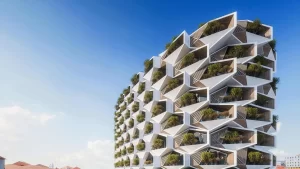
Sustainable Development of Istanbul Built Environment
The document titled “Sustainable Development of Istanbul Built Environment” addresses the critical need for sustainable practices in the rapidly urbanizing city of Istanbul. It highlights the challenges faced by the built environment due to environmental degradation and proposes actionable strategies to promote sustainable development.
Context and Importance
Istanbul, as a major urban centre, experiences significant environmental pressures stemming from rapid economic growth and population increase. The built environment is a major contributor to these issues, necessitating a shift towards sustainable development practices. The document emphasizes that sustainable development in this context refers specifically to the construction of environmentally friendly residential and commercial buildings.
Barriers to Sustainable Development
The study identifies several barriers hindering sustainable development in Istanbul’s construction sector:
- Lack of Awareness: There is insufficient knowledge among stakeholders about sustainable practices and their benefits.
- Financial Constraints: High initial costs associated with green building technologies deter investment.
- Regulatory Challenges: Existing laws and regulations often do not support or incentivize sustainable construction practices effectively.
- Market Dynamics: The construction market is influenced by short-term profit motives, which can conflict with long-term sustainability goals.
Research Methodology
To better understand these barriers, the research involved surveys targeting construction professionals and interviews with key stakeholders. This approach aimed to gather insights on existing practices, challenges, and potential solutions for enhancing sustainability in Istanbul’s built environment.
International Best Practices
The document reviews successful sustainable development models from various global cities such as Stockholm, Amsterdam, and Singapore. These examples illustrate how integrated approaches—combining policy, technology, and community engagement—can lead to effective sustainable urban development.
Recommendations for Improvement
Based on the findings, the document outlines several recommendations to foster sustainable development in Istanbul:
- Policy Reform: Establishing clear policies that promote green building standards and provide incentives for sustainable construction practices.
- Financial Incentives: Developing financial mechanisms such as grants, subsidies, or tax breaks to encourage investment in energy-efficient technologies.
- Capacity Building: Implementing training programs for construction professionals to enhance their understanding of sustainable practices.
- Public Awareness Campaigns: Conducting campaigns to educate the public and stakeholders about the benefits of sustainable building practices.
- Collaboration Among Stakeholders: Encouraging collaboration between government agencies, private sector players, and civil society to create a cohesive approach towards sustainability.
Conclusion
The document concludes that enhancing the sustainability of Istanbul’s built environment is essential for mitigating environmental impacts and improving quality of life for its residents. By addressing the identified barriers through comprehensive policy reforms and stakeholder engagement, Istanbul can transition towards a more sustainable future.In summary, the path to achieving sustainability in Istanbul’s built environment involves recognizing existing challenges while leveraging international best practices to create effective local solutions. The recommendations provided aim not only to improve the environmental performance of buildings but also to ensure that these efforts contribute positively to the broader urban ecosystem in Istanbul.
More reading: Business Management in Sustainable Buildings: Ankara-Turkey Case
[PDF] Sustainable Development of Istanbul Built Environment – DiVA portal diva-portal
Promoting Low Cost Energy Efficient Wooden Buildings in Türkiye undp
